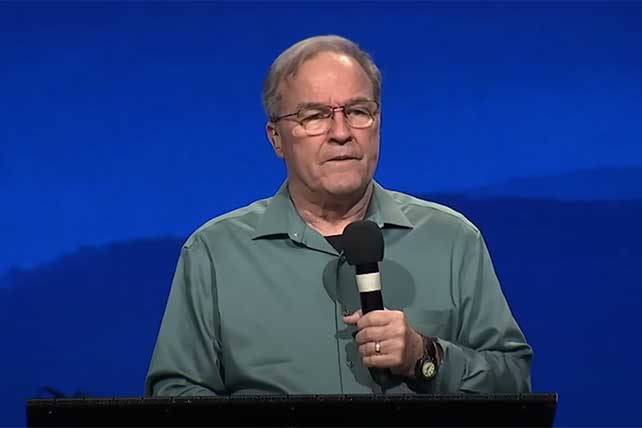The Best Method for Discipling Believers in a Thriving Small Church
“What discipleship curriculum do you recommend for small churches?”
I get asked that question a lot. And my answer almost always disappoints the questioner.
“Whatever works in your context.”
Here’s why I can answer so casually about such an important church subject.
Training Is Better Than Teaching
How well does your church disciple believers? If you’re like most church leaders, you probably feel like you don’t do it as well as you’d like to.
This is especially true for small churches. You’ve looked through curriculum, maybe even tried some of the highly-recommended programs that have worked well in the big churches you admire. But for most small churches, they don’t have the same impact.
Why not? Because sitting in a classroom is not the best way to disciple people. Very few people learn well that way. They learn best by another, so-old-it’s-new learning style.
Mentoring.
Mentoring is better than teaching. Especially for discipleship.
Mentoring was how Jesus, Paul and the rest of the early church discipled new believers.
Discipleship isn’t primarily about knowing theology and memorizing verses – as important as that is. The essence of discipleship is, as the Apostle Paul put it, to “Follow my example, as I follow the example of Christ.” (1 Cor 1:11 NIV)
Overcoming Our Classroom Bias
We’ve almost abandoned mentoring in favor of classrooms in most of the western church world.
The skeptics will tell us it’s because companies can make money selling us classroom curriculum. There’s no money to be made in mentoring. While it’s never wise to discount the role money plays in many of our bad decisions, I think putting the blame on the profit motive is misguided, simplistic and unnecessarily cynical in this situation.
I think the reasons are less sinister and much more boring.
It’s about old habits dying hard. We’re used to doing it this way. We’re so accustomed to learning in a classroom setting that it’s hard for us to think of doing it any other way.
In Jesus’ day they didn’t have a classroom bias. People learned because a mentor took an apprentice under their wing. They lived and worked together. The mentor showed the apprentice how to do the task until the apprentice could do it on their own. Then the apprentice mentored others.
It still happens that way in many non-western cultures today.
Why Curriculum? And When?
In addition to our classroom bias, we’ve defaulted to a curriculum bias in most of our churches because of size. Once a church, or any group, gets beyond a certain size, mentoring becomes impractical, even impossible.
But we should stick with mentoring as long as we can. It is always the preferred way to make disciples.
This is not an anti-curriculum rant. Curriculum is great. It can be used quite effectively to supplement a mentoring process, including providing theological and methodological guardrails against extremism. But curriculum should never replace mentoring. Especially in a smaller church.
Which brings us back to where we started. Most of the churches in the world are small. The reason we gravitate towards curriculum isn’t because there are too many people to mentor. It’s because we’re so used to using curriculum that we’ve forgotten about mentoring.
But we need to think about what we’re missing when we undermine the value of mentoring.
Ask anyone to list the top spiritual influences in their lives. They will never mention a curriculum. What do they mention? A teacher. A pastor. A parent. A friend. In other words, a mentor.
The truth is, we’re already doing mentoring because we’re having relationships. But we’re not mentoring as well as we could because we’re seldom as intentional about it as we need to be.
The Power of Mentoring
I wonder. I don’t know, but I wonder. Could mentoring be part of the answer to the current wave of people – especially younger people – leaving the church in record numbers?
I think the possibility is worth considering.
If you talk to 100 people who have left or are considering leaving their church, I doubt if you’d find 10 of them who have an ongoing mentoring relationship with someone at that church.
Curriculum doesn’t connect us to a church body. People do. People who love Jesus and show us how to love him, too. People who love us enough to invest their time in us.
Again, curriculum is not bad. The issue isn’t whether we use it, but how much we rely on it. The concentration in discipleship needs to be on the mentoring relationship, not on the curriculum.
Curriculum can make us think we’ve been discipled when all we’ve done is finish the classes.
As a small church pastor, I think I know what you may be thinking right now.
Mentoring sounds hard.
You barely have time to do the basic pastoring tasks in your church, let alone mentor everyone. Buying a book or a curriculum packet is so much easier than a hands-on investment in all those lives.
I get it. I thought the same thing for many years. But mentoring is not about asking any one person, including the pastor, to be responsible for all the discipleship in a church.
I’ll get into the practical aspects of small church mentoring in my upcoming article, Simple Steps For Discipling Believers In A Thriving Small Church.
The beauty of mentoring-based discipleship is that it doesn’t just create smarter Christians. It raises up new mentors.
Let’s bring mentoring back.
This article originally appeared here.





















